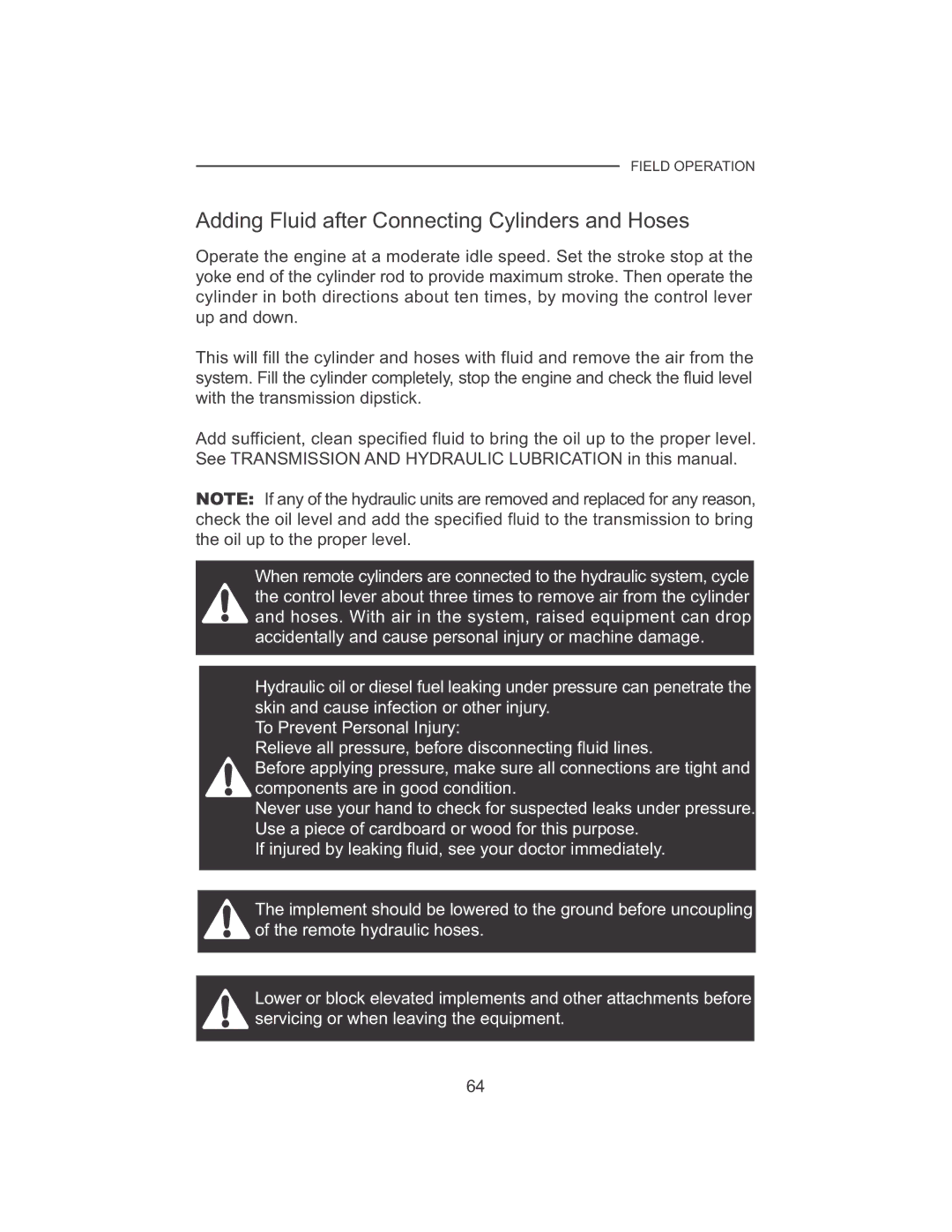
FIELD OPERATION
Adding Fluid after Connecting Cylinders and Hoses
Operate the engine at a moderate idle speed. Set the stroke stop at the yoke end of the cylinder rod to provide maximum stroke. Then operate the cylinder in both directions about ten times, by moving the control lever up and down.
This will fill the cylinder and hoses with fluid and remove the air from the system. Fill the cylinder completely, stop the engine and check the fluid level with the transmission dipstick.
Add sufficient, clean specified fluid to bring the oil up to the proper level. See TRANSMISSION AND HYDRAULIC LUBRICATION in this manual.
NOTE: If any of the hydraulic units are removed and replaced for any reason, check the oil level and add the specified fluid to the transmission to bring the oil up to the proper level.
When remote cylinders are connected to the hydraulic system, cycle the control lever about three times to remove air from the cylinder and hoses. With air in the system, raised equipment can drop accidentally and cause personal injury or machine damage.
Hydraulic oil or diesel fuel leaking under pressure can penetrate the skin and cause infection or other injury.
To Prevent Personal Injury:
Relieve all pressure, before disconnecting fluid lines.
Before applying pressure, make sure all connections are tight and components are in good condition.
Never use your hand to check for suspected leaks under pressure. Use a piece of cardboard or wood for this purpose.
If injured by leaking fluid, see your doctor immediately.
The implement should be lowered to the ground before uncoupling of the remote hydraulic hoses.
Lower or block elevated implements and other attachments before servicing or when leaving the equipment.
64
